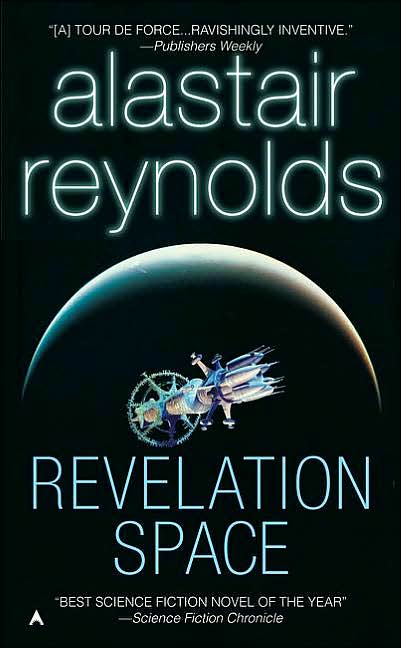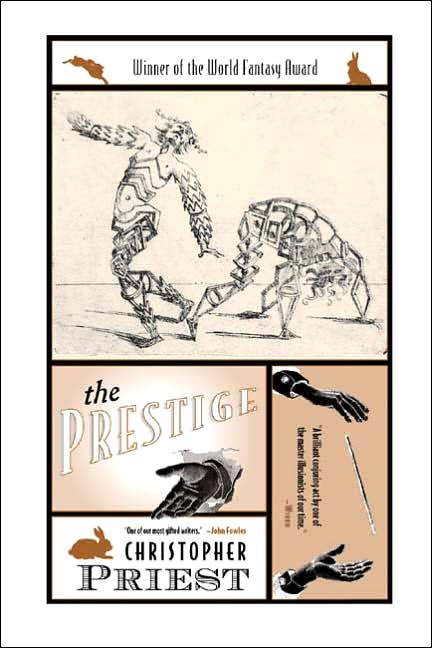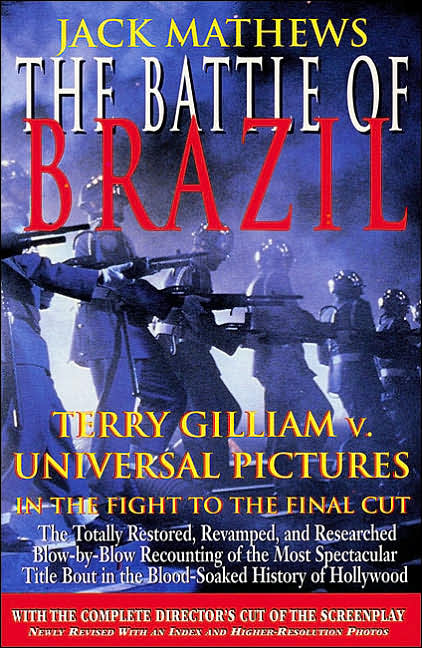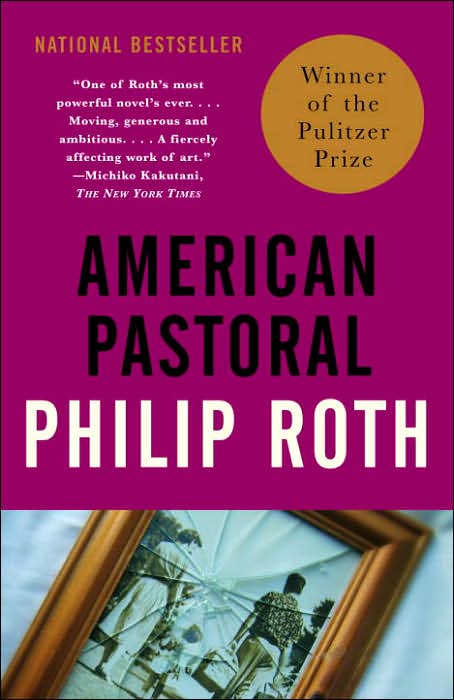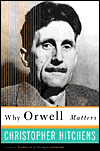Two intriguing links from today’s Cliopatria: First, Inside Higher Ed‘s Scott Lemee surveys the hubbub surrounding an apparent Holocaust-related hoax perpetrated by Kavalier & Klay author Michael Chabon. And, elsewhere, What’s the Matter With Kansas author Thomas Frank tries to figure out what’s the matter with liberals, and concludes we play far too easily into the “out-of-touch elitist” stereotype.
Tag: Authors
Augie Marches On.
Ghostbusters.
“[B]y writing his autobiography himself, the madcap Central European actor Klaus Kinski produced the most brutally honest book about the motion picture industry ever. Here is a typical passage: ‘No outsider can imagine the stupidity, blustering, hysteria, authoritarianism and paralyzing boredom of shooting a flick for Billy Wilder.’ No ghostwriter would ever have written a passage like that, because ghostwriters are by nature timid, diplomatic, gun-shy.” Um, really? In the Sunday NYT Book Review, author Joe Queenan complains about the burgeoning ghostwriting industry. I think he needs to meet more ghostwriters.
Clearing the Book Bin.
In a perfect world, I’d write up book reviews here on GitM with the consistency and length of my movie posts. (Then again, in a perfect world, I’d also be able to dunk a basketball.) But, time being a factor, here instead are some short thoughts on non-history books recently consumed.
Revelation Space, Alastair Reynolds: “Working alone, living within the cramped confines of the pod, Sylveste spent weeks learning how to jump-start the lighthugger’s crippled repair systems…When the recuperative processes were in swing he was able to sleep, finally — not daring to believe that he would actually succeed. And in those dreams, Sylveste gradually became aware of a momentous, paralysing truth…before he regained consciousness, something had happened. Something had reached into his mind and spoken to him. But the message that was imparted to him was so brutally alien that Sylveste could not put it into human terms. He had stepped into Revelation Space.“
I’d heard a lot of good things from sci-fi aficionados I trust about the Revelation Space arc of Alastair Reynolds, who holds a PhD in astronomy and clearly knows his stuff. In fact, one of the strengths of Revelation is in how Reynolds grounds what amounts to a sci-fi space opera in hard science ideas. For example, I don’t think I’m giving too much away to say that the book offers a hypothetical answer to Fermi’s Paradox, or that Hawking’s singularity theories play a significant role in the denouement. Of course, some scientific quandaries, such as the ability for ships to move at or around lightspeed, are left unexplained (it’s apparently been figured out by a shadowy, mysterious group known as the Conjoiners.) But, even those flights of fancy carry the touch of realism, as indicated by the time disparities throughout the book — Often, a character will get locked away in jail or have some other ugly incident befall him or her, and then fifteen years will pass in the space of a few paragraphs (or at least fifteen years relative to the prisoner — the time is shorter on the ship en route.)
These clever ideas notwithstanding, however, I found Reynolds’ writing style a bit dense and unwieldy at times. All in all, I ended up enjoying Revelation Space, but it was also a bit of a slog. In fact, I ended up putting it down for several weeks. There are four books (and counting) in the series, and I’ve heard they get better as they go along…but still, I’ve been putting off delving into #2, the prequel Chasm City, until I’ve got more time on my hands.
Children of God, Mary Doria Russell: “It was absurd in hindsight — the very idea that a handful of humans might have been able to do everything right the first time. Even the closest of friends can misunderstand one another, he reminded himself. First contact — by definition — takes place in a state of radical ignorance, where nothing is known about the ecology, biology, languages, culture, and economy of the Other. On Rakhat, that ignorance proved catastrophic. You couldn’t have known, Vincenzo Giuliani thought, hearing his own pacing, but remembering Emilio’s. It wasn’t your fault. Tell that to the dead, Emilio would have answered.“
As y’all may or may not remember, I highly recommended Mary Doria Russell’s The Sparrow last fall, and have only now gotten around to reading the sequel, in which both Father Emilio Sandoz, sole survivor of the ill-fated Jesuit expedition, and the planet of Rakhat grapple with the consequences of the abortive, abysmal First Contact described in Book One. An anthropology PhD (I promise, I read sci-fi by non-PhDs too — this back-to-back was a fluke), Russell has constructed a clever and refreshing science fiction tale here that seems very far removed from most standard forays in the genre. I preferred Sparrow to Children — in fact, in some ways I think the resolution of the latter book detracts from the power of the first — but they’re both well worth-reading and readily accessible to people who get easily aggravated by the usual sci-fi literary tropes.
I will admit that at times I felt that Russell’s characters all spoke with the same voice — they all have the same wry intelligence and self-deprecating humor, and they tend to react in similar ways when pushed to the wall. But, it’s a forgivable lapse, and besides, given that this is the type of mistake made by newer authors, the tendency may well be rectified in her newest, just-published book, A Thread of Grace (No more sci-fi for now — Grace is a work of historical fiction set in WWII Italy.)
The Prestige, Christopher Priest: “First let me in a manner of speaking show you my hands, palms forward, fingers splayed, and I will say to you (and mark this well): ‘Every word in this notebook that describes my life and work is true, honestly meant and accurate in detail.’…Already, without writing a falsehood, I have started the deception that is my life. The lie is contained in these words, even in the very first of them. It is the fabric of everything that follows, yet nowhere will it be apparent. I have misdirected you with the talk of truth, objective records and motives. I have omitted the significant information, and now you are looking in the wrong place.”
After finishing up Batman Begins, Memento‘s Chris Nolan will apparently be making this film, and it should be a doozy. Tales of turn-of-the-century prestidigitators have perhaps been somewhat overdone in recent lit — At times, The Prestige reminded me of both Glen David Gold’s Carter Beats the Devil and the first “Houdini” half of Kavalier & Klay. Nevertheless, The Prestige, the sordid tale of two dueling stage magicians and their respective covenants with electrical pioneer Nikola Tesla, is a quick fantasy read that’s well worth picking up. Even if you figure out where it’s all going, and I’d say I guessed most of it about halfway through, the ending still has a Five Star level Twilight Zone-creepiness to it. All in all, with an eerie climax you’re not going to shake off lightly, The Prestige is a grim and captivating conjuration — read it before seeing the movie.
The Battle of Brazil, Jack Mathews: “Gilliam’s Brazil is a cautionary tale about the loss of passion in a bureaucratic society where people passively go along to get along. It’s his metaphor for the lives we now lead, overly dependent as we are on structure, materialism, and dubious technology. There isn’t a futuristic element to it, other than the likelihood that the future holds more of the same. The love story between the daydreaming bureaucrat Sam Lowry and the cynical truck driver Jill Layton is the major sub-text. The dominant theme is that only through fantasy can we escape the reality of our own lives.“
I actually don’t quite agree with Jack Mathew’s take above on the film…there’s a lot more going on in Brazil than just Organization Man angst. [I tossed this out for my college paper almost a decade ago, but at some point I’d like to write a much-longer post around here that does Brazil (and, for that matter, Amadeus, Miller’s Crossing, and several other of my Top Ten films) justice.] At any rate, you can get most of the information in The Battle of Brazil — which chronicles the attempts by Universal flunky Sid Sheinberg to either squash or re-edit the film — out of the companion documentary on the 3-disc Criterion set (which also includes the Sheinberg “Love conquers all” edit.) But, for fans of Terry Gilliam’s magnum opus (as well as people interested in studio realpolitik), there are a lot of fun anecdotes and vignettes to be had — For example, Rupert Everett or Tom Cruise as possible Sam Lowrys, DeNiro’s Method Acting Tuttle to everyone’s annoyance, and Gilliam’s point-for-point evisceration of several negative reviews of the film (including ones by Rex Reed, Roger Ebert, and the inimitable Pauline Kael.) This version of the book also contains the full screenplay (by Gilliam, Tom Stoppard, and Charles McKeown, the latter of whom plays Sam’s office neighbor Harry Lime.) Again, a quick read, and interesting in its own right as a tale of Hollywood inside baseball. But, of course, unlike The Prestige, see the movie before you read the book.
The Shawl, Cynthia Ozick: “She looked into Magda’s face through a gap in the shawl: a squirrel in a nest, safe, no one could reach her inside the little house of the shawl’s windings. The face, very round, a pocket mirror of a face: but it was not Rosa’s bleak complexion, dark like cholera, it was another kind of face altogether, eyes blue as hair, smooth feathers of hair nearly as yellow as the Star sewn into Rosa’s coat. You could think she was one of their babies.“
I’ll be the first to admit that when it comes to evaluating serious and prize-winning short fiction like Cynthia Ozick’s The Shawl, I tend to feel slightly out of my depth. (But being uninformed about matters has never stopped me from commenting before, so why worry about it now?) At any rate, the question of how to address and make sense of insensible atrocities is one pondered by both fiction writers and historians. And, while I was moved and impressed by some of Ozick’s paragraphs or imagery at times, altogether, I don’t think these two stories squared that elusive circle very well.
At the risk of spoiling it for you [Seriously, stop reading if you don’t want to know the end], the very brief first story in The Shawl, set inside a concentration camp, basically involves a mother’s reaction to watching her baby get thrown onto an electric fence. (The longer and better second tale picks up with the same mother, now a semi-sane Holocaust “survivor” in retiree-land Florida, thirty years later.) This first story is obviously shocking and repugnant, and perhaps as a way of approximating a small sliver of the unknowable horror of the Holocaust, it may even be a success. But, to be honest, I found it more exploitative than anything else — the central incident of the tale happens so quickly and with so little context that it reminded me of what David Edelstein (and others) noted of the egregious 21 Grams: “it doesn’t take insight or artistry to shake up an audience with dead kids. It just takes a certain kind of ruthlessness.“
To be fair, perhaps my problems with The Shawl are faults of the genre. After all, if there’s any murdering of innocents to be done in a short story, it has to be done rather quickly, or else we’re getting into novella territory. Still, I found Bao Ninh’s novel The Sorrow of War a much more harrowing and successful survivor’s tale read of late, partly because it reflects at length on the questions of writing and remembering, but also because it had more room to breathe, more lulls between the horrific episodes, and, to my mind, more character development.
American Pastoral, Philip Roth: “He had learned the worst lesson that life can teach — that it makes no sense. And when that happens the happiness is never spontaneous again. It is artificial and, even then, bought at the price of an obstinate estrangement from one and one’s history…He whose natural nobility was to be exactly what he seemed to be has taken in far too much suffering to be naively whole again…Stoically he suppresses his horror. He learns to live behind a mask. A lifetime experiment in endurance. A performance over a ruin. Swede Levov lives a double life.”
A few years ago a good friend of mine let me her copy of Goodbye, Columbus as an introduction to the world of Philip Roth and…well, not to put too fine a point on it, I didn’t like it. (My impressions of the book are blurry now, but I remember thinking that not only could I not empathize with the main character, I actively disliked him, from his relishing his 1-on-1 basketball victories over his girlfriend’s little sister to his endless passive-aggressive pushing on the diaphragm issue. In retrospect, I guess that was probably the point.) So, when another good friend offered me her copy of American Pastoral, I was mildly hesitant.
Yet, I found Swede Levov’s fall from American grace vastly preferable to my first Roth experience, so much so that I aim to throw a few more of his books in the hopper at some point in the near future. (Looking back, it was probably a bad call to judge a writer of Roth’s stature and prolificness by only his first work anyway, however well-reviewed.) At times, I did think the “Americanness” aspect of the Swede’s arc was a tad overdone — for example, in the Johnny Appleseed segues, or the hinge point of the story being 1968. And perhaps the symbolism was occasionally just a little too cute (e.g. Miss New Jersey becoming a breeder of cows, or the dinner party incident that closes the book.) But, all in all, Pastoral turned out to be quite a powerful treatise on the charred smell emanating from all too many postwar American dreams, as well as a haunting case study of one man trying to keep it together once the wheels come off. (By the way, I’m open to suggestions for the next stop on the Roth train. Portnoy? I Married a Communist?)
Why Orwell Matters, Christopher Hitchens: “The three great subjects of the twentieth century were imperialism, fascism and Stalinism…Most of the intellectual class were fatally compromised by accomodation with one or other of these man-made structures of inhumanity, and some by more than one…[But after his experience as a budding imperialist functionary in India] Orwell was in a stronger position to feel viscerally as well as intellectually about the modernist empires of Nazism and Stalinism. Among many other things, of which an educated sympathy for victims and especially racial victims was only one, he had grown sensitive to intellectual hypocrisy and was well-tuned to pick up the invariably creepy noises which it gives off. He was already an old India hand, in other words, when it came to detecting corrupt or euphemistic excuses for undeserved and unchecked power.“
I’m sure I’m not the only person out there who looks at Christopher Hitchens these days and laments a great writer and once-formidable man of the Left now — seemingly irrevocably — gone to seed. Still, Orwell being high in my personal pantheon of writers, I thought I’d give his extended essay Why Orwell Matters a look-see. The result is intriguing not only for what it tells us about Orwell, but also in understanding and humanizing this most recent incarnation of Hitchens. Throughout the book, Hitchens applauds Orwell’s enviable foresight and his “power of facing” unpleasant truths so often obscured to others by ideology or wishful thinking. As the passage above suggests, with the exception of severely understating the future role of the US in world affairs (and his occasional and unfortunate lapses into homophobia), Hitchens argues, Orwell got all the big questions of the 20th century right. He anticipated the demise of imperialism and — unlike many of his contemporaries on the Left — was as stringent an opponent of Stalinist totalitarianism as he was of Nazism.
Hitchens is correct in noting all of these remarkable insights and legacies of our man Orwell. (As an aside, Hitchens’ theory that Orwell could probably have gotten lifesaving treatment for his tuberculosis here in America is really just too depressing to contemplate.) Still, I don’t think it’s going too far to suggest that Hitchens is also trying to use Orwell as a paragon of independent thinking in order to justify his own recent cheerleading for the Bush administration and the war in Iraq.
I don’t know how Orwell would come down on the Iraq war. Who can know for sure? On one hand, as Hitchens would immediately point out, Orwell was no friend to tyrants. He put his own life on the line to defend Republican Spain, and — like most clear-headed people — wouldn’t shed a tear to see a two-bit sadistic despot like Saddam dispatched to the dustbin of history. On the other hand, Orwell clearly had a well-developed suspicion of imperialist enterprises, particularly those cloaked in the language of freedom and good intentions. If nothing else, I feel pretty confident Orwell would have lambasted the corruption of political rhetoric — and outright lies — that characterized our entry into this current conflict. I’m sure Hitchens is right to suggest that Orwell would rally against the inhuman ideology of terrorist fundamentalism, as he did against the nefarious -isms of his day. But that doesn’t mean Orwell — or Hitchens, for that matter — should be so sanguine in backing our current policy in Iraq. One does not necessarily flow from the other.
The Proud Highway’s End.



R.I.P. Hunter S. Thompson 1937-2005. Ugh, this is terrible news. Yes, his writing had been inconsistent in recent years, but Thompson at his take-no-prisoners best was a brilliant, lacerating voice that pierced through the platitudes and hypocrisy of so much of this world. This final succumbing to the Fear and Loathing, especially at this dark political hour when we need him most, is tragic.
I had several links to catch up on after my trip, but frankly right now my heart isn’t in it. Godspeed, HST.
circumlocutory pleonastic flibbertigibbet!
Having already exposed Chuck Palahniuk as a (gasp!) hack, Laura Miller, Salon‘s guardian of the literary citadel, now aims to dethrone H.P. Lovecraft (and neither Cthulhu nor a number of readers are pleased). C’mon now…is that really necessary? It’s not as if Lovecraft is some endlessly promoted sacred cow of the literati — he’s just an early 20th-century spinner of pulp yarns with some cachet among the fanboy nation, one with some very Cronenberg-like hang-ups and a better flair than most at evoking unfathomable dread. What with all the goofy adjectives and leaps of hyperbole, Lovecraft is obviously an easy caricature — so why bother? Miller seems to be something of a Tolkienite and generally sympathetic to fantasy writing, so her hit here is all the more surprising. Frankly, I’d find her criticism more scintillating if she didn’t resort to shooting fish in a barrel.
A Man of Constant Sorrow.
“It was a kind of nostalgia, like the immense sadness of a world at dusk. It was a sadness, a missing, a pain which could send one soaring back into the past. The sorrow of the battlefield could not normally be pinpointed to one particular event, or even one person. If you focused on any one event it would soon become a tearing pain. It was especially important, therefore, to avoid if possible focusing on the dead.”
 A quick literary shout-out: Hard to read and harder to put down, Bao Ninh’s The Sorrow of War, which I read on my plane ride back from Norfolk, is arguably the best anti/war novel I’ve read in over a decade. (I’ll always have a soft spot for Joseph Heller’s Catch-22 and Kurt Vonnegut’s Slaughterhouse Five, but the surrealism and absurdity of those two seem a world apart from the brutality of Ninh’s book.) Graphic and harrowing to the last, Sorrow tells the story of Kien, a North Vietnamese soldier full of youth and promise in the heady days of 1964. Unlike virtually everyone he knows, however, Kien actually manages to survive the Vietnam War to its conclusion in 1975, only to discover that peace remains an elusive ideal, and memory a cruel mistress.
A quick literary shout-out: Hard to read and harder to put down, Bao Ninh’s The Sorrow of War, which I read on my plane ride back from Norfolk, is arguably the best anti/war novel I’ve read in over a decade. (I’ll always have a soft spot for Joseph Heller’s Catch-22 and Kurt Vonnegut’s Slaughterhouse Five, but the surrealism and absurdity of those two seem a world apart from the brutality of Ninh’s book.) Graphic and harrowing to the last, Sorrow tells the story of Kien, a North Vietnamese soldier full of youth and promise in the heady days of 1964. Unlike virtually everyone he knows, however, Kien actually manages to survive the Vietnam War to its conclusion in 1975, only to discover that peace remains an elusive ideal, and memory a cruel mistress.
A kindred spirit to All Quiet on the Western Front, Ninh’s book doesn’t pull any punches — There are dark moments and harsh visions herein that will remain with me for some time to come. Still, it’s a very powerful book, and one worth reading if you have the strength for it.
People are Strange (when you’re M. Norrell).
 Well, I must confess, when I had first heard that Mrs. Clarke’s new tome, detailing the illustrious and somewhat murky history of those wily English magicians Strange & Norrell, may rival Tolkien and Peake in its depth and prodigiousness, I could not refrain from shewing my surprize to the other guests at last month’s gala ball for the Historians-in-Training, an offense which may work to keep me off the social rolls for the foreseeable future. Nevertheless, in spite of this inadvertent affront to polite academic society, I immediately alighted to the booksellers of Mr. Barnes & Mr. Noble to procure a copy of this well-received book, arguably the most important work on matters of European prestidigitation since Strange’s own The History and Practice of English Magic. (No disrespect to M. Segundus intended. I find his works on magic very illuminating, but they’re entirely too theoretical for my taste.)
Well, I must confess, when I had first heard that Mrs. Clarke’s new tome, detailing the illustrious and somewhat murky history of those wily English magicians Strange & Norrell, may rival Tolkien and Peake in its depth and prodigiousness, I could not refrain from shewing my surprize to the other guests at last month’s gala ball for the Historians-in-Training, an offense which may work to keep me off the social rolls for the foreseeable future. Nevertheless, in spite of this inadvertent affront to polite academic society, I immediately alighted to the booksellers of Mr. Barnes & Mr. Noble to procure a copy of this well-received book, arguably the most important work on matters of European prestidigitation since Strange’s own The History and Practice of English Magic. (No disrespect to M. Segundus intended. I find his works on magic very illuminating, but they’re entirely too theoretical for my taste.)
 And the verdict? Well, those hardy and deluded souls suggesting Mr. Tolkien‘s work of years past has now been surpassed should aspire to do more reading of the fantastical sort. Nevertheless, Mrs. Clarke’s work is a delightful and compulsively readable fantasy-of-manners that, as others have noted, effortlessly blends the genre milieu of Mrs. Rowling with the authorial voice of the nineteenth century British novel. Her sketches of those enigmatic souls Mssrs. Norrell & Strange, as well as such Dickensian personae as Mssrs. Childermass, Drawlight, Lascelles, and Pole, are for the most part convincing, as are her disquisitions on such otherwise notable figures as Lords Wellington and Byron.
And the verdict? Well, those hardy and deluded souls suggesting Mr. Tolkien‘s work of years past has now been surpassed should aspire to do more reading of the fantastical sort. Nevertheless, Mrs. Clarke’s work is a delightful and compulsively readable fantasy-of-manners that, as others have noted, effortlessly blends the genre milieu of Mrs. Rowling with the authorial voice of the nineteenth century British novel. Her sketches of those enigmatic souls Mssrs. Norrell & Strange, as well as such Dickensian personae as Mssrs. Childermass, Drawlight, Lascelles, and Pole, are for the most part convincing, as are her disquisitions on such otherwise notable figures as Lords Wellington and Byron.
 Mrs. Clarke’s work is particularly successful in capturing the peculiarly English quality of Strange & Norrell’s history. Indeed, from the chilly, funereal melancholy that pervades the Faerie court of Lost-Hope to the circuitous rituals of courtship that have always defined our Atlantic brethren, the book headily invokes those days soon after the Napoleonic Wars when the thaumaturgic spirit of the Raven King reawoke throughout the villages, fields, copses, and moors of John Bull. In this emphasis and intertwining of magic and national character, I was often reminded of American Gods by Mr. Gaiman, who has heretofore expressed great admiration for Mrs. Clarke’s project. (Speaking of which, as a student of the former Colonies, I do wish Mrs. Clarke had taken more seriously the considerable contributions to the Magickal Arts made by Americans at this historical moment, but perhaps that is a matter left to scholars of our own Republic.)
Mrs. Clarke’s work is particularly successful in capturing the peculiarly English quality of Strange & Norrell’s history. Indeed, from the chilly, funereal melancholy that pervades the Faerie court of Lost-Hope to the circuitous rituals of courtship that have always defined our Atlantic brethren, the book headily invokes those days soon after the Napoleonic Wars when the thaumaturgic spirit of the Raven King reawoke throughout the villages, fields, copses, and moors of John Bull. In this emphasis and intertwining of magic and national character, I was often reminded of American Gods by Mr. Gaiman, who has heretofore expressed great admiration for Mrs. Clarke’s project. (Speaking of which, as a student of the former Colonies, I do wish Mrs. Clarke had taken more seriously the considerable contributions to the Magickal Arts made by Americans at this historical moment, but perhaps that is a matter left to scholars of our own Republic.)
Despite this lapse, however, Mrs. Clarke’s timely chronicle more than lives up to the high bar we’ve come to expect from Cantabridgian historians of magic. I highly recommend this treatise to those of you even remotely curious about the British magical renaissance of two centuries ago, and particularly if you want your understanding of the subject unsullied by the forthcoming film from New Line Cinema. (In that regard, perhaps Mssrs. Holm and Bettany can be prevailed upon to depict Norrell & Strange respectively…)
The Road to Hell.
“The redemptive power of suffering is, in my experience at least, vastly overrated.” Over this past weekend, I finally got the chance to read Mary Doria Russell’s The Sparrow, and, while it becomes a dark journey indeed for Emilio Sandoz, our Jesuit protagonist, over the course of the novel, I heartily recommend it. In fact, it’s probably the best science-fiction book I’ve read since Perdido Street Station (although Russell’s book is much less phantasmagoric than Mieville’s more fantasy-tinged stuff.)
A former paleo-anthropologist and academic jack-of-all-trades, Russell has retold the standard First Contact type of story here with a blend of straight-up hard sci-fi, Columbian commentary, and devastating ruminations on the price of faith and the laws of unintended consequences. While the story here seemed self-contained, I’m now rather looking forward to picking up her sequel, Children of God (although the reading queue is pretty backed up right now.) At any rate, if you like your sci-fi literate, intelligent, and ultimately somewhat nightmarish, think about checking out The Sparrow. Update: You can read the first chapter here. Also, if you haven’t read The Sparrow, stay out of the comments, where the end of the book is being discussed.
Mightier than the Sword?
Along the lines of the Washington Monthly forum posted last Friday, The Guardian asks a number of American writers — among them Paul Auster, Norman Mailer,and Richard Ford — for their thoughts on a second Bush term, and it ain’t pretty. (As you may have seen elsewhere, Mailer has birddogged a choice Goering quote which I won’t re-post here for fear of invoking Godwin’s Law.)

